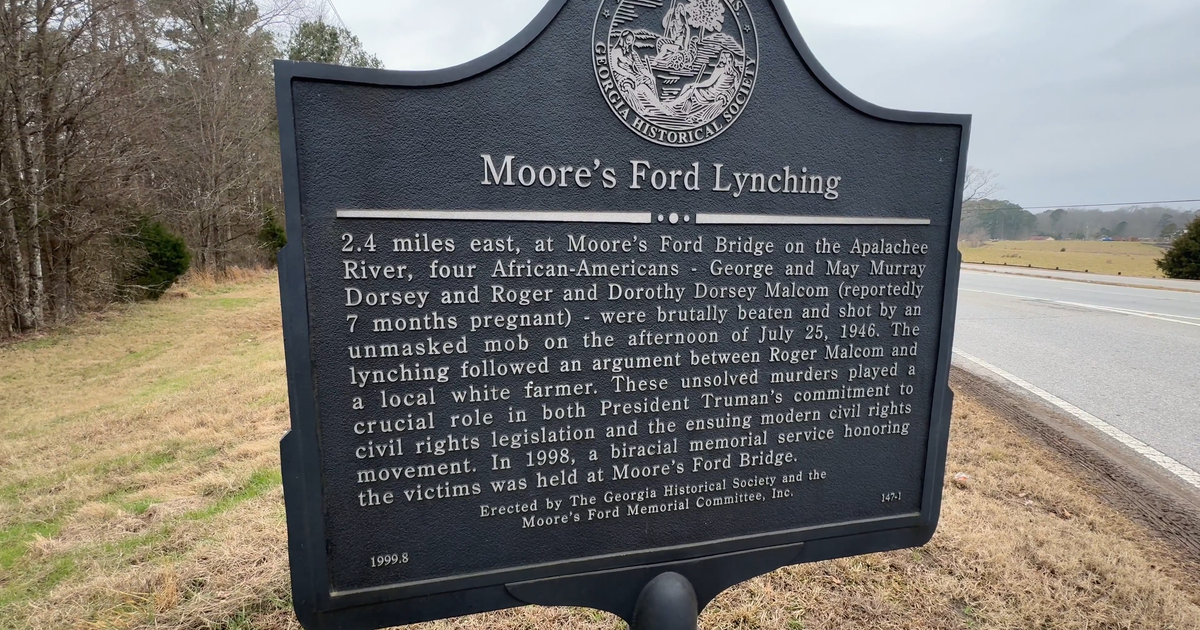Riot insurance: American cities' new must-have
Does your town need "riot insurance?" That may depend on what kind of statue is in the town square. Monuments and statues of Confederate-era generals and statesmen -- many erected after their cause was lost -- have ignited a firestorm that has inflamed racial tensions and helped escalate the white supremacists' rally last weekend in Charlottesville, Virginia, into a deadly conflagration.
Riot insurance was once a requirement for only major cities -- especially those hosting controversial gatherings like presidential conventions and international monetary conferences that attract demonstrators. But now such coverage is becoming a must-have for midsize cities and small towns nationwide, particularly throughout the South, where more than 700 Confederate monuments dot the landscape.
It could also be needed at federal parks and tourist attractions like Gettysburg, Pennsylvania, where Confederate and Union generals faced off across the battlefield. Statues of former slave-holding presidents such as Andrew Jackson also may not be exempt.
The issue of politically incorrect monuments had a harsh spotlight shone on it this past weekend in the liberal bastion of Charlottesville, home to the University of Virginia. White supremacists protested the city's decision to remove statues of Confederate Generals Robert E. Lee and Thomas "Stonewall" Jackson.
Their demonstration provoked a counter-demonstration. Violent confrontations between the two groups turned deadly when 20-year-old James Alex Fields Jr. allegedly drove his car into the counter-demonstrators, killing one and injuring 19. The Ohio resident has been charged with second-degree murder.
The killing provoked demonstrations across the country, including as far away as Seattle, and it escalated racial tensions everywhere. Meanwhile, a group called Americans for Richmond Monument Preservation recently announced plans to hold an "event" in September in Virginia's capital city of Richmond to keep Lee's monument in place. A permit for the event has yet to be granted. And this Saturday several more alt-rallies are scheduled for cities across the U.S.
Insurers -- even abroad -- are noticing the change in the tone of political violence in America and reacting to it. They're advocating that cities and municipalities should, too. "There's an increase in activism from all sides," said Srjdan Todorovic, head of terrorism for Allianz Insurance in London. "People aren't just satisfied with expressing themselves on social media anymore. The want to do their talking on the streets."
Allianz sells terrorism insurance, but it also offers "riot insurance," which covers strikes, riots and civil disturbances, as a "stand-alone product." It has been doing so for years, but riot insurance came to the forefront during the U.S. presidential conventions of 2016, when both Cleveland and Philadelphia feared that -- with the angry rhetoric surrounding the campaign -- these gatherings would turn violent.
Cleveland reportedly spent $10 million to protect itself. Americans are acting in a way "we haven't seen in generations," said Todorovic.
Riot insurance covers companies, cities and even small towns. Many insurers have been "blindsided" by the current atmosphere of violence, so the current policy, which usually covers fire, flood and wind, may not be enough, said Todorovic.
"Policies generally include coverage for losses caused by riot," said spokesperson Loretta Worters of the Insurance Information Institute, which represents the property-casualty industry. But it has to be "direct physical loss caused by riot or civil commotion, and looting at the time and place of the occurrence."
"As for those businesses that must suspend operations due to rioting, coverage is only triggered if there is direct physical damage to the premises of such magnitude that the business must suspend its operations," she added.
Every business and government entity should determine if they're covered against the effects of political violence, said Allianz's Todorovic. They need to make sure they have insurance if a riot shuts down their business district for an extended time or forces a police curfew that causes financial losses or even bankruptcy to local restaurants, bars and night-time businesses.
Todorovic noted that when buying riot insurance, towns also have to be careful of the "triggers." For example, a single act of violence, such as ramming a car into a crowd, might not be enough to get the insurer to pay a claim, but a resulting protest by a thousand people would. "Some policies might say that 10 or more people have to be involved before it is a 'disturbance,'" he added.
This type of insurance is relatively cheap, and prices seem to be coming down. But the drawback is that these confrontations appear to be random and so could happen anywhere an offending statue of a general or slaveholding former president has been erected. General Lee is now an insurance risk.



